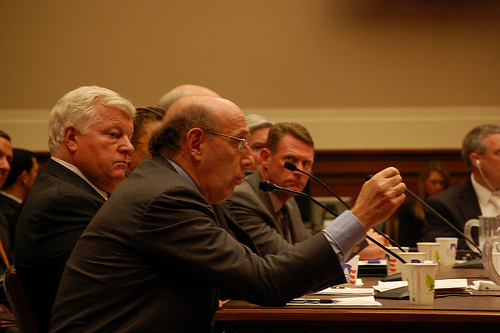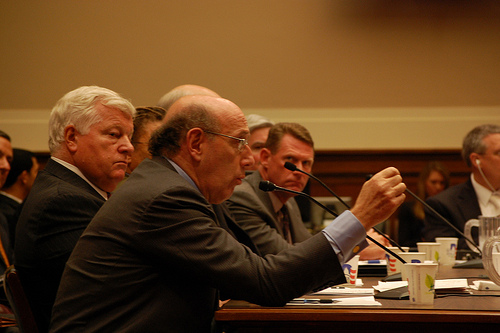
Image via talkradionews/Flickr.
Gulf spill fund administrator Kenneth Feinberg is finding out that he might have to be more flexible than he he previously thought when it comes to doling out BP’s money. Feinberg, a master mediator who faces a major challenge in administering BP’s $20 billion spill fund, has had to shift his position on a few issues in the past weeks: how quickly he can actually distribute compensation and how many people may be eligible for funds.
Last week, Feinberg’s office admitted that his promise to process individual claims within 48 hours and business claims in seven days was overly optimistic. The center now says that processing claims will take as much time as is “necessary and appropriate.”
The center is seeing some pick-up in their processing times in the three weeks since Feinberg took over. As of Wednesday evening, 27 percent of the 62,983 claims have been approved for payment. And the center is doing better than BP—as ProPublica notes, “Feinberg has paid out about $151 million in claims in a little over three weeks, while BP paid out approximately $400 million in about three and a half months.”
Feinberg has also indicated that he might be more flexible on the issue of proximity to the spill. As I reported last week, businesses who were far from the oil but still impacted by the decline in tourism have complained that the proximity standard will leave them out in the cold. As the Florida Independent reported yesterday, Feinberg may be reassessing:
Speaking Tuesday to the Florida Restaurant and Lodging Association, Feinberg said that while he remains skeptical of claims from alleged victims far from the spill, his thinking was changing, and that in the interest of avoiding additional lawsuits, he would try to at least meet [Florida Attorney General Bill] McCollum part-way.
Although plans have not yet been finalized, Feinberg said claimants such as hotels in Miami and Jacksonville should be able to submit their claims for review without formally filing them. Then, someone — or perhaps a dedicated committee — from the Gulf Coast Claims Facility would review the claim and try to come up a with way to resolve it, either through the facility or some separate arrangement akin to the fund Feinberg created to compensate the real estate industry.
The New York Times has more today about Feinberg’s evolution on the fund. Basically, he’s acknowledging one of the major complaints from critics—that writing people out of eligibility for the fund leads to the same lengthy litigation the fund was designed to avoid.











